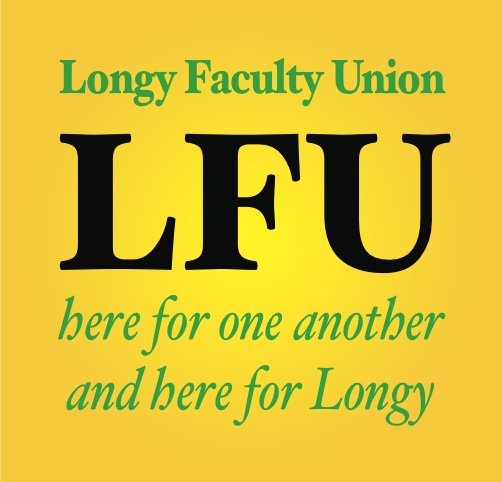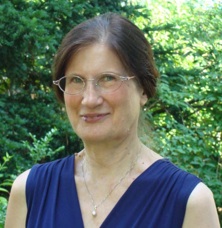|
The Longy Faculty Union Newsletter looks even better in your browser. |
Share this issue
|
|||||||
|
||||||||
In this issue
SubscriptionMaster IndexLFU GlossaryRead past issues
Contact Us
News items
Stay tuned!
|
AFT files charges against LongyThe American Federation of Teachers Massachusetts has filed charges against the Longy School of Music for unfair labor practices within the meaning of section 8(a), subsections (1) and (5) of the National Labor Relations Act. The administration has repeatedly refused to bargain over the drastic changes to terms and conditions of employment that it announced, without advance warning to affected faculty, in letters that were mailed to the faculty dated March 12, 2010. These changes were made suddenly and unilaterally, and when the Negotiating Committee repeatedly asked the administration, both verbally and in writing, to rescind the changes and negotiate them, the administration has declined, claiming that the changes were within the scope of their legal management rights. The Negotiating Committee has been requesting and gathering information about these changes while simultaneously researching and writing a new proposed contract. As of August 3, 2010, we have submitted over 40 articles of a detailed proposed contract to the admnistration. As we noted in the July 28, 2010 issue of LFU News, we have been submitting proposals steadily on a week-by-week basis since mid May, and to date, we have received responses to only two proposed articles. Those responses total less than one type-written page of text, and they were given to us in recent negotiating sessions. We continue to hope that the administration will rescind its unilateral actions and begin to negotiate with our duly formed Union in good faith, as is required by Federal law. Back to top^Voices of the "realigned"This faculty profile is a continuation in a series of articles honoring the contributions of faculty members who have been affected by the "realignment" that was announced in a faculty meeting on March 5 of this year. The announcement of this faculty restructuring — which affected ninety-two faculty members, according to administration count — came just weeks after the faculty voted by overwhelming majority to form a union on January 20. The LFU has steadfastly demanded that the administration rescind the letters that were sent to individual faculty members shortly after the March 5 meeting. The LFU welcomes comments here from anyone who feels concerned by the faculty "realignments". Affected faculty who would like to present their stories in future issues of LFU News are encouraged to contact Deborah Beers. Back to top^Profile: Dianne Pettipaw
I am principal second violin of, and on occasion soloist with, the Boston Ballet Orchestra. I also perform with the Boston Pops Esplanade Orchestra, Emmanuel Music, Cantata Singers, Handel & Haydn Society, and Pro Arte Chamber Orchestra. I have consistently promoted Longy courses to my students and prospective students, and have brought more than thirty new students into the school over the years. My Preparatory students have regularly played in Longy orchestras and chamber music ensembles, and have sometimes played in the Greater Boston Youth Symphony Orchestra for additional experience. My Continuing Studies students have played in many of the community orchestras in the area. One of my current students now plays as concertmaster in the Arlington Symphony, and I am still teaching other Continuing Studies students who are working toward important auditions next year. In 2008, a grateful student's family gave a donation to the school in appreciation of my work.
In March, 2010, I received a registered letter from the school stating that "Longy is in the midst of a period of tremendous change" and that my employment at Longy would end on August 31 of
this year. I will miss teaching at Longy very deeply, and miss the collaboration with my wonderful and congenial faculty colleagues. Yeshiva: What does it mean?There have been many questions, opinions, and pieces of misinformation about the Supreme Court "Yeshiva" ruling floating around Longy for months now, so we will take a moment here in LFU News to explain and put everything in context. The "Yeshiva" ruling refers to a Supreme Court (SC) decision made on February 20, 1980 in a case called National Labor Relations Board v. Yeshiva University, 444 U.S. 672 (1980). In this case, the full-time faculty of certain schools within Yeshiva University formed a Union that was certified by the National Labor Relations Board (NLRB) through the same voting process we went through here at Longy. Following the certification, the University refused to bargain with the Union. The Union then filed unfair labor practices charges against the University for failure to bargain. The NLRB ordered the University to bargain and sought enforcement in the Court of Appeals. The University argued that these full-time faculty members were actually managerial employees and not entitled to unionize under the National Labor Relations Act. The Court of Appeals agreed with the University. The NLRB took the appeal to the Supreme Court which agreed with the Court of Appeals and issued a short opinion explaining their decision. Since then, this SC case has been one of the main precedents used by the NLRB to decide whether private sector employees who wish to form a union are considered "managerial" or not. There have also been many other subsequent NLRB cases that further clarify the details of the SC Yeshiva decision and what it means for the unionization of faculty at private sector schools of higher education. Before getting into the subsequent case law, it's important to note that the Supreme Court was quite simple and straightforward in its decision. In section V of the decision the SC writes: "The controlling consideration in this case is that the faculty of Yeshiva University exercise authority which in any other context unquestionably would be managerial. Their authority in academic matters is absolute. They decide what courses will be offered, when they will be scheduled, and to whom they will be taught. They debate and determine teaching methods, grading policies, and matriculation standards. They effectively decide which students will be admitted, retained, and graduated. On occasion their views have determined the size of the student body, the tuition to be charged, and the location of the school." This is the crux of the determination. In the case of Yeshiva, the faculty, according to the SC, had extensive, pervasive and essentially absolute control. In fact, the SC went on to further explain that they certainly did not mean to imply that this would apply to all private sector schools of higher education or more generally to all "professional" employees: "We certainly are not suggesting an application of the managerial exclusion that would sweep all professionals outside the Act in derogation of Congress' expressed intent to protect them...Only if an employee's activities fall outside the scope of the duties routinely performed by similarly situated professionals will he be found aligned with management." Since Yeshiva, the NLRB has ruled on a number of cases that further elucidate the decision, making it clear that the determination of faculty "managerial" status requires that the faculty have a pervasive and high degree of control — as explained in the Yeshiva ruling — and relies on an examination of a wide variety of parameters. In particular, the simple facts that faculty may (1) sit on numerous school committees, (2) make curricular recommendations, (3) manage the content of their own classes, (4) have a Faculty Forum, and (5) make other administrative recommendations, do not in and of themselves, individually or together, make a case for the faculty being "managerial". A careful examination of the extent and breadth of control in comparison with other cases that have been decided since Yeshiva is required to make the determination whether a faculty is in fact "managerial". Some of these NLRB cases include (in chronological order) Bradford College v Milk Wagon Drivers and Creamery Workers Union, 1-RC-17300 (April 30, 1982). Florida Memorial College v. United Faculty of Florida, 12-UC-53 (September 20, 1982); Kendall School of Design v. Kendall Faculty Association, 7-UC-226 (April 14, 1986); St. Thomas University v. St. Thomas University Faculty Association, 12-RC-6955 (April 25, 1990); and University of Great Falls v. Montana Federation of Teachers, 19-RC-13114 (November 8, 1997). In each of these cases, the NLRB made detailed comparisons to the criteria in Yeshiva, and to other cases that referred to Yeshiva, to determine that the employees were not managerial. The St. Thomas case, for example, refers to Bradford College: "By contrast, in Bradford College, 261 NLRB 565 (1982), the Board held that the faculty members were nonmanagerial where governance documents indicated that they had substantial authority, but where in practice they had little. The Board found that the faculty did not effectively determine teaching loads, salaries, budget, the filling of administrative positions, faculty evaluations, or certain faculty personnel actions...The Board concluded:'In sum, while the faculty and division chairs have the written right to make recommendations, the record shows that such recommendations were often ignored or reversed by the president, by the academic dean, or by both with respect to curriculum, admission policies, graduation of students, course loads, course scheduling, grading of students, faculty hiring or retention, tuition, and faculty salaries.'" When one reads these cases, it becomes very clear that the situation at Longy is very different from the Yeshiva criteria and, in virtually every regard, is similar to all the cases that have been decided in favor of the union in question. Therefore, when you hear someone say something to the effect of, "You can't have committees, because now you have a Union," the appropriate response is "poppycock!" In the schools that were the subject of every NLRB decision made in favor of a union in the past 30 years, union members participated extensively in numerous committees. Furthermore, our accrediting organizations, NASM and NEASC, both require extensive faculty participation in the governance of the school through committees for successful accreditation. Bottom line is that the Union in no way inhibits our right to be involved in the governance of Longy. In fact, it enhances and supports that right, because now we are entitled to negotiate the terms and conditions of our employment and to obtain a legally binding (aka not "at will") contract for the first time in the history of the school. Come join our ranks as we work toward a successful future for the School, for the students and for ourselves! Back to top^Virtual office hoursThe LFU is announcing virtual "office hours" for the month of August. People may try to contact members of the Board at any time to discuss important issues, but the virtual "office hours" are specifically set up for members of the LFU Board to take calls about Union issues. Upcoming times are:
|



 I have taught at Longy for about thirty-four years, giving lessons in private violin and viola to both Preparatory and Continuing Studies students, and coaching ensembles. Since 1980, I have
taught exclusively at Longy.
I have taught at Longy for about thirty-four years, giving lessons in private violin and viola to both Preparatory and Continuing Studies students, and coaching ensembles. Since 1980, I have
taught exclusively at Longy.